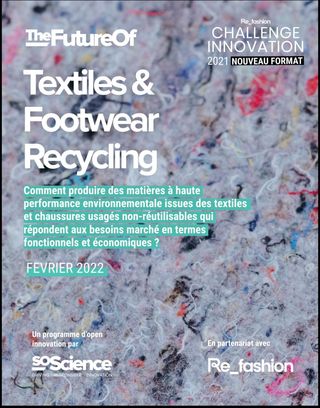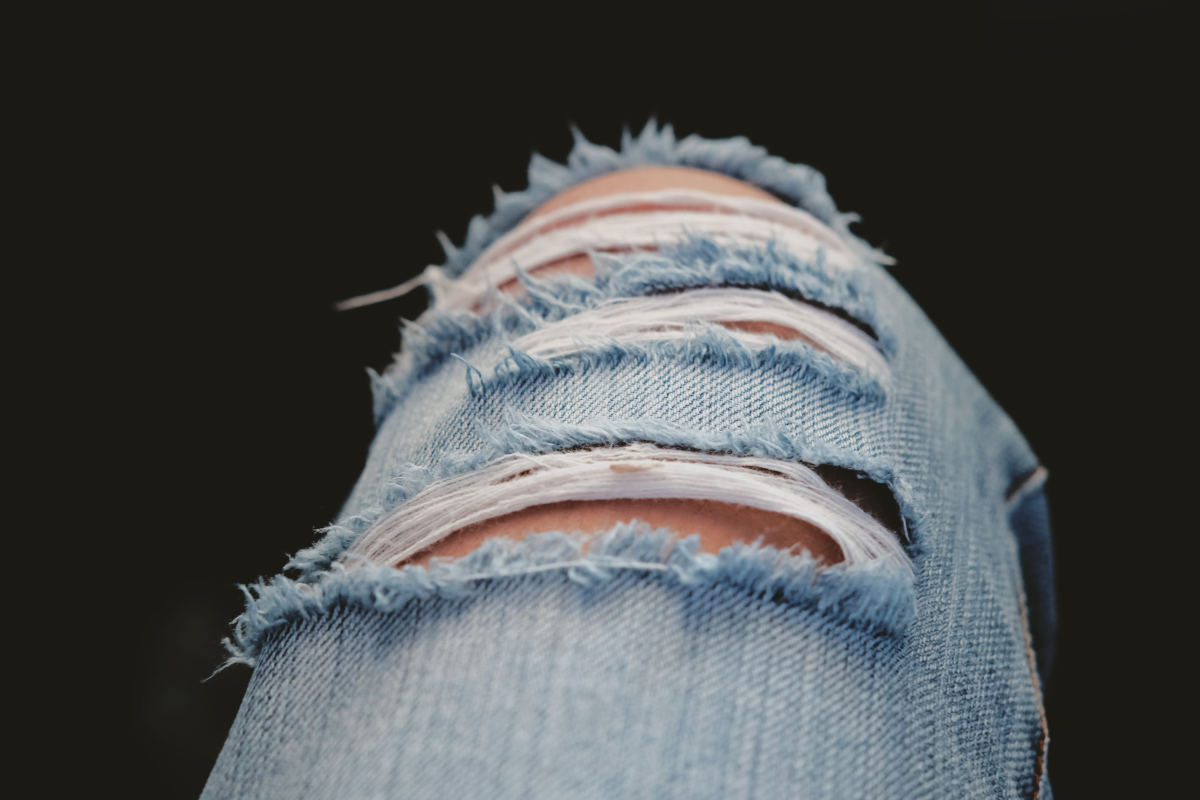The future of textiles & footwear recycling
04.11.2021

© SoScience
With the production of textiles for clothing, linen and footwear expected to increases by 2.7 % each year up until 2030 (“The State of Fashion 2021”, Business of Fashion & McKinsey et Company’s), the linear type of economic model adopted by the textile industry is becoming less and less ecologically viable. As a result, politicians and members of the civil society are starting to plead in favour of a progressive transformation towards a circular economy.
In France, out of the 650 000 t of clothing, linen and footwear put on the market every year, 250 000 t are collected within which only 156 000 t (Refashion’s annual report: those are the 2019 numbers. 2020 numbers are less indicative (500 t commercialized and 200 000 t collected) because of the pandemic) are sorted by authorized facilities. The French recycling sector wants to achieve 300 000 t collected AND sorted each year with a maximum of 2 % eliminated. This means at least 100 000 t of used and non-reusable textiles and footwear to rehabilitate each year. Time is of the essence.
However, most of the rehabilitation from these wastes (recycling, turning into fuel or other sources of energy) occurs mostly abroad at the moment. Industrializing the recycling process of these non-reusable used textiles and footwear is thus a major issue especially for relocating this economic activity in French and European territories. This demands new technologies allowing the detection, sorting, dismantling and ejection of fabrics in a viable process that would need an automated assembly line.
How to produce environmentally performing materials from post-consumer non-reusable textiles and footwear that fit the market’s functional and economical needs?
How to sort and dismantle an increasing number of non-reusable used textiles and footwear? How to spark interest and encourage funding for materials and products made from recycled goods?
This industrialization process needs to be made in accordance with a long term vision thought by every actor of the supply chain: producers, distributers, sorters, recyclers and local authorities. They all need to co-create projects surrounding the rehabilitation of recycled materials not only in the textile industry but also in automobile, construction, geotextiles and plastics.
Whatever part you play in the recycling chain, we need your expertise to think and develop materials, machines or technologies (with economic and functional specifics) that have limited environmental impacts. Apply for “The Future Of Textiles & Footwear Recycling” and collaborate to improve and speed up the move towards circularity.
This open innovation program aims at bringing together different actors from various sectors in order to generate solutions with positive impacts. Selected collaborative projects will receive technical, operational and financial support.
Who can apply?
· Open to all (consortium, company, association) for a solution to be implemented in France/Europe
· I would like to share my expertise with other actors and be inspired by other
· I am a local authority wishing to participate in the project and / or develop on my territory TLC recycling solutions
· My lab is working on this theme, and I wish to develop research partnerships in the future
· I am a start-up with an innovative solution on this topic
· I am an association/NGO wishing to set up a local program in partnership
· I support an organization (incubator, investor ...) wishing to boost promising projects in this field
Selection criteria
· A form of expertise on the topic
· Solutions applicable in France and Europe
· The Innovation Challenge ONLY concerns used textiles and non-reusable shoes from household consumption in France
· An interest in the creation of partnerships with high potential for positive impacts for society
· A desire to engage in multi-stakeholder collaborations (you will take advantage of this opportunity to find complementary approaches and skills)
· Your approach is inclusive and / or social and environmental, and aims to tackle a key societal issue
· No specific TRL level required other than a first research work undertaken
· We favor innovative / unusual / original solutions, ideas and approaches
Benefits
· A financial prize as part of the Refashion 2021 Innovation Challenge: minimum € 500 000 distributed over the selected projects, without equity participation or fees (55 projects supported and monitored since 2010)
· Technical and operational support from SoScience (multi-stakeholder coordination, intellectual property, project management, etc.)
· Support from the Refashion Scientific Committee made up of recognized industry experts

